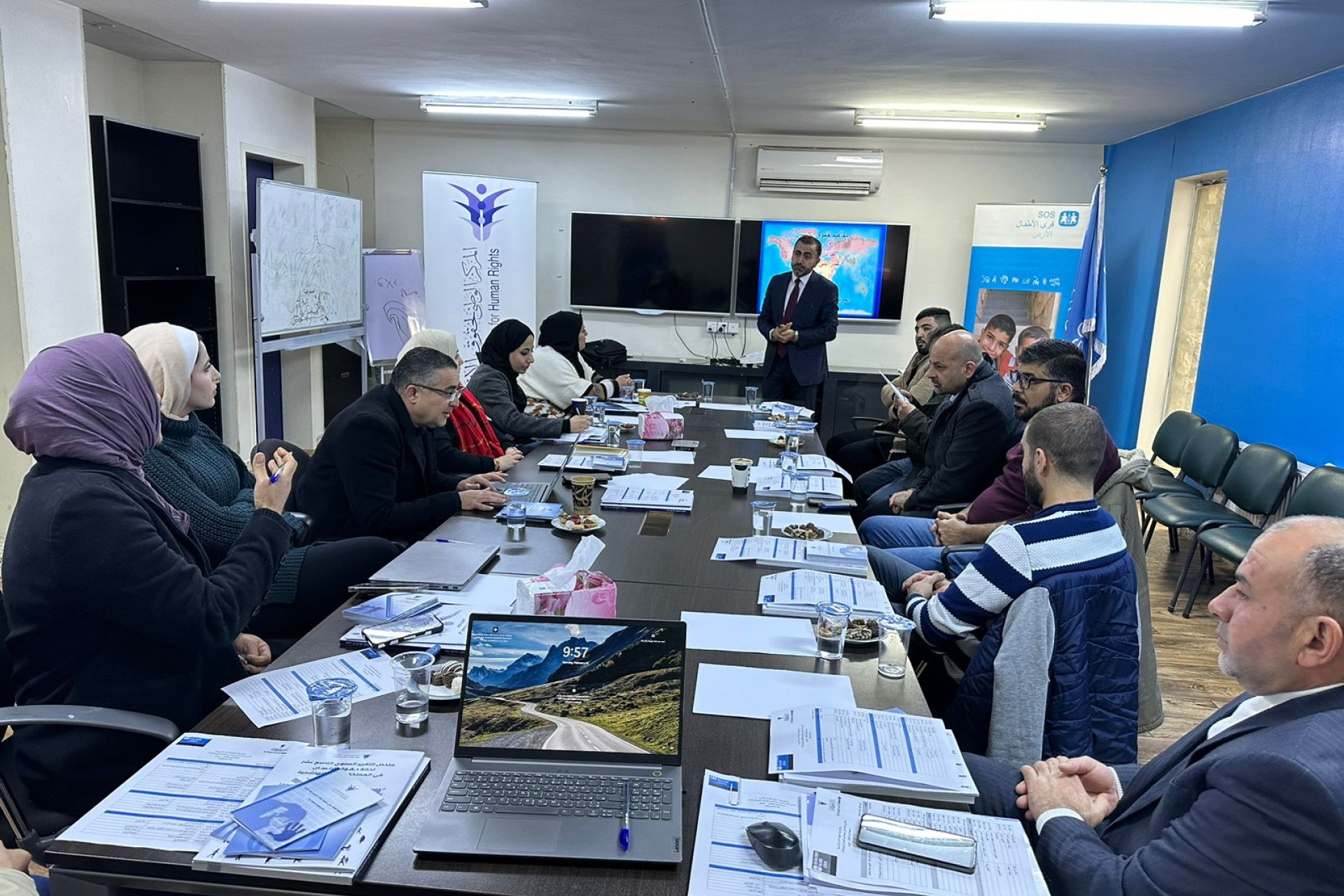ينفذ المركز الوطني لحقوق الإنسان دورة تدريبية تأسيسية في حقوق الإنسان لمقدمي الخدمة العاملين في جمعية قرى الأطفال SOS ، تستمر لمدة ثلاثة أيام خلال الفترة 19-21 /2/ 2024. وتأتي هذه الدورة في إطار تفعيل مذكرة التفاهم بين المركز والجمعية والتي تهدف إلى تقديم المحاضرات وتنفيذ البرامج التدريبية والتوعية بالمعايير الدولية لحقوق الإنسان والتشريعات الوطنية لمنتفعي وموظفي جمعية قرى الاطفال.
وتتناول الدورة موضوعات مختلفة منها مفاهيم حقوق الإنسان، الشرعة الدولية لحقوق الإنسان، اتفاقية حقوق الطفل، دور المركز في حماية وتعزيز حقوق الانسان، الرصد والتحقق لانتهاكات حقوق الانسان، والشكاوى ومتابعتها.
ويشارك في إعطاء المحاضرات مفوض الحماية ومفوض التعزيز وعدد من مدراء الإدارات في المركز. وحري بالذكر أن المرحلة الأولى من التدريب تستهدف مقدمي الخدمة في أقاليم الوسط والشمال والجنوب، وتستهدف المرحلة الثانية المنتفعين من الجمعية في أقاليم المملكة الثلاث.
من الجدير بالذكر أن جمعیة قرى الأطفال الأردنیة هي جمعیة تنموية وطنیة غیر ربحیة تأسست عام 1983، تقدم الرعایة للأطفال والشباب فاقدي السند الأسري في بيوت أسرية ومجتمعية في عمّان وإربد والعقبة، وفي بیوت الشباب والشابات التابعة لها. كما تقدم الجمعية الدعم للشباب والشابات حتى عمر 24 سنة لمساعدتهم للوصول لمرحلة الإستقلالية.
يمتاز نموذج الرعاية الأسرية البديلة في قرى الأطفال بتوفير رعاية متكاملة للأطفال والشباب تغطي الرعاية والأمن الغذائي والمسكن والتعليم والرعاية الصحية والنفسية والتمكين والأمن الاقتصادي والحماية والدمج المجتمعي.
فيما يعمل المركز الوطني لحقوق الإنسان على حماية وتعزيز حقوق الإنسان بنشر ثقافتها ومراقبة أوضاعها وتقديم المشورة والمساعدة القانونية لمحتاجيها، واتخاذ الاجراءات الإدارية والقانونية اللازمة لمعالجة الشكاوى المتعلقة بالانتهاكات والتجاوزات على حقوق الإنسان للحد منها ووقفها وإزالة آثارها، وإعداد الدراسات والأبحاث وتوفير المعلومات وعقد الندوات والدورات التدريبية وإدارة الحملات وإعلان المواقف وإصدار البيانات والمطبوعات ومراجعة التشريعات وإعداد التقارير اللازمة.
